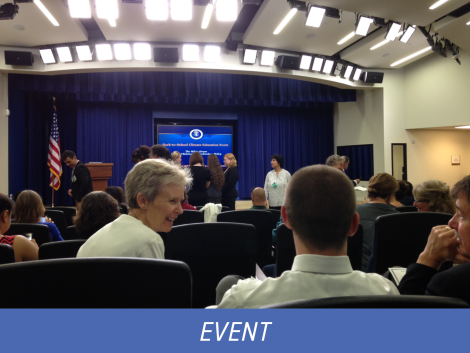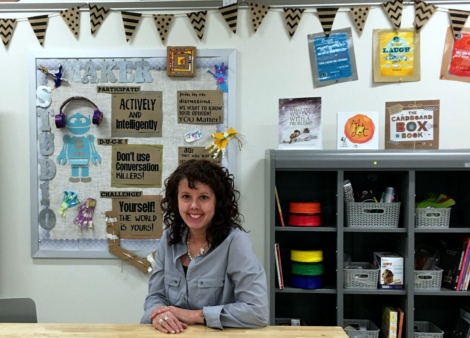
BrainPOP Heads to the White House!
Posted by cemignano on
BrainPOP’s Assessment Specialist, Kevin Miklasz, attended the Back-to-School Climate Education Event at the White House on August 20, 2015. Check out his reflection of the day full of exciting and informative presentations!
It was great to hear from some of the leaders in the field of climate change, such as Dr. Kathryn Sullivan, the head of NOAA, and David Friedman, who works at the Office of Energy Efficiency and Renewable Energy. But the highlight of the event for me was undoubtedly all of the youth who were not only in the room, but also presenting on the stage.
The impact achieved by these students as pretty phenomenal, such as Jack Ruiz’s work turning used cooking oils into biofuels that they gave to needy families, both in the US and in Guatemala. There was a subtle undertone throughout the event, in which there was both an apology and acknowledgement from the older generation to the younger generation that this was their problem to solve. But there was also a commitment to listening to youth and finding ways to empower them to better enact change, rather than trying to enact change on their behalf without their input. This attitude more than anything else gave me much hope for the future.
Two additional points stuck with me from the student panel. First, when the panelists were talking about their experiences, they commonly intermingled learning about climate change and helping people deal with climate change. These two actions were clearly one and the same to the students on this panel: this was learning-by-doing at its extreme. Learn about biofuels by teaching rural Guatemalans to convert cooking oil into fuel. Learn about conserving resources by convincing your school to adopt “power down” days. Activism and learning were side by side.
Second, the student panel was asked by the moderator how they became interested in climate change. Every panelist pointed to experiences they had outside and in nature, mostly as a young child. An audience member keenly noticed this and asked them if they had any school experiences that helped steer them towards their current path. This question really stumped the panel. One panelist recalled one college class that he found enjoyable. Then two other panelist noted, well, there were some school field trips that they found really inspiring. Their answer about how school inspired their interest in climate science was trips whose main purpose was to take them out of school.
The message couldn’t be clearer- their interest in nature came from being in nature, not from being in a classroom. On the one hand, this statement feels obvious, but on the other, this is really important. Having dipped my toes in both biology and physics, I’ve always thought that biological sciences are fundamentally different from the physically sciences in how they achieve inquiry-based learning. You can (and probably should) mix chemicals together in a school lab. You always have basic physics, or objects with mass, forces, friction, gravity etc., in a classroom. But you just don’t have biology in a classroom. You can have classroom pets, but it’s just not the same- teaching through inquiry should have a certain messiness to it, and part of the inquiry is understanding and sorting through that messiness. A classroom pet on a strict diet in a confined space is just not conceptually messy (though I’m sure physically it’s quite messy).
I was really glad to have been able to attend this event, and be inspired by all of the amazing presenters, young and old, that were in the room!














